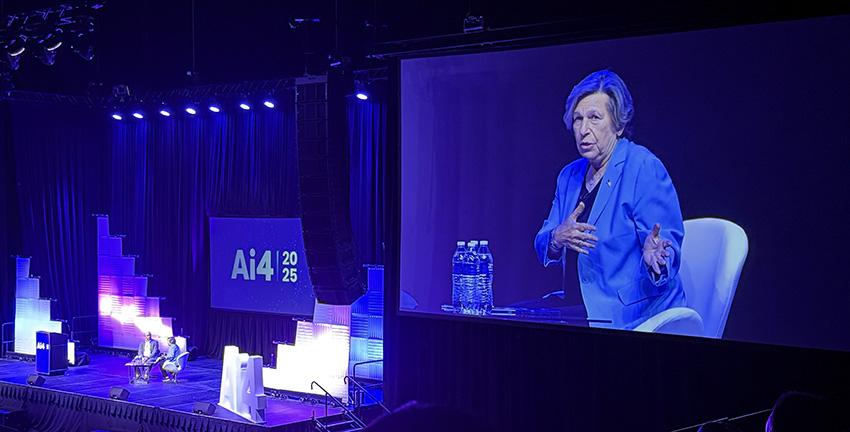Ai4 2025 opens with call for ethical AI in classrooms
The opening day of Ai4 2025 featured a keynote conversation on the profound implications of artificial intelligence in public education, led by Randi Weingarten, president of the 1.8-million-member American Federation of Teachers (AFT). Interviewed by Jason Abbruzzese, assistant managing editor at NBC News, Weingarten addressed both the promise and perils of AI in America’s classrooms, urging proactive safeguards in the absence of federal regulation.
Weingarten described the arrival of ChatGPT in late 2022 as a watershed moment for educators. “Our world just completely changed,” she said, recalling early discussions within the AFT about whether AI would be a fleeting trend or a transformational technology on par with the printing press. Rather than retreat, the union chose to engage directly, launching the AFT AI National Institute with $23 million in funding from Microsoft, OpenAI, and Anthropic.
The Institute, based in New York City, aims to develop practical guardrails for safe, ethical, and responsible AI use in education, while ensuring teachers remain “in the driver’s seat.” Weingarten emphasized that with no national guidelines, educators themselves must shape how AI is integrated into learning while protecting students’ privacy and fostering critical thinking.
Weingarten pointed to collaborative efforts between educators and developers, including a symposium in Chicago where teachers provided real-world feedback to Microsoft engineers. “If we could put developers and educators together, we could start finding ways where AI was really helping educators do their jobs and helping society,” she said.
Teachers’ concerns, she noted, extend beyond plagiarism to the erosion of critical thinking skills, data privacy risks, and the potential for over-reliance on technology. However, she also highlighted innovative classroom applications, such as using AI to support read-aloud exercises for special needs students, enabling more personalized attention.
The conversation turned to broader policy issues, with Weingarten warning against the creation of a “surveillance state” and drawing parallels to the unchecked spread of social media. She criticized the lack of federal investment in AI education initiatives and predicted that regulatory measures would likely emerge at the state level.
On partnerships with technology firms, Weingarten said the AFT is working on baseline data privacy agreements, stressing that companies must align with educators’ role as “in loco parentis” for students.
When asked about her personal use of AI, Weingarten said she employs ChatGPT and Copilot as research tools and for drafting recommendation letters—always editing them herself. Her closing message to the room of technologists was clear: “Build for a future of creativity, freedom, justice, and a society that works for all. Build as if you are building for your own children and for their futures.”
The keynote set a tone for the conference that balanced optimism about AI’s potential with a call for vigilance, collaboration, and a human-first approach to education technology.
Robert Fletcher, CEO and Editor-in-Chief at CIJ EUROPE, is attending the event to cover the latest AI innovations, conduct interviews, and participate in panel discussions. His reports will appear in CIJ EUROPE’s August coverage and the Q3 issue of CIJ EUROPE magazine, bringing insights from Ai4 directly to the publication’s readership across the real estate and business sectors.









